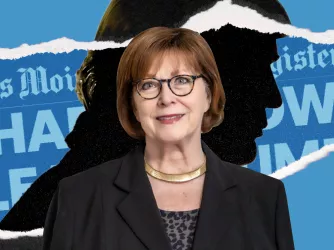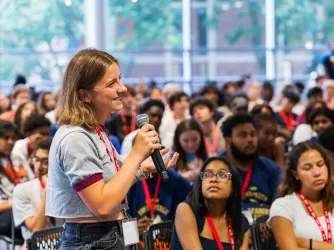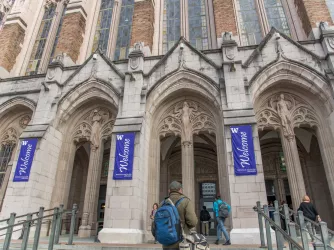Table of Contents
Rights in the News: FIRE on a Roll with Numerous Victories and Successful Videos
The past week at FIRE has been filled with victories for free speech on campus, and the media has responded. After FIRE's victory for freedom of conscience at Virginia Tech, the St. Petersburg Times published a column by Bill Maxwell entitled "A diversity step too far." In it, Maxwell agrees with FIRE's efforts to protect freedom of conscience at VT, writing:
Although diversity is a worthy goal, suggesting that evidence of it is required as one of the activities in professors' annual report for advancement and tenure is wrong. As a former professor, I would not want to be forced to show evidence that I have encouraged diversity in order to advance in my profession.
Maxwell's column, syndicated by the Scripps Howard News Service, has made FIRE's work internationally known yet again, this time reaching as far as the Korea Times.
Additionally, Virginia Tech's student newspaper, the Collegiate Times, featured FIRE on Tuesday in the first part of a three-part series on diversity efforts at Virginia Tech. The article covers FIRE's letter to the Virginia Tech administration and the response received when news of the policies broke.
Elsewhere, the Miami Herald's columnist Glenn Garvin ran an entertaining piece entitled "Why can't students say 'guns' in school?", in which he summarized some of FIRE's cases that dealt with students getting in trouble for mentioning the word "gun" or "firearm" or distributing materials promoting empty holster protests. Garvin writes:
My own hunch is that the sheer number of Americans who own guns (the low estimate is something over 40 million) will keep their Second Amendment rights off the endangered-species list for the foreseeable future. Their First Amendment rights, however, may be another matter. Those are taking a beating these days, right in the place that's supposed to be America's rowdiest free-speech zone: college campuses.
And our biggest victory of the week was at University of Massachusetts Amherst, where administrators rejected the censorship of The Minuteman, a conservative campus newspaper that mocked a student government official. Pete Chagnon at OneNewsNow.com picked up on the case, writing a brief piece on the numerous speech violations at UMass, including the Minuteman incident and the episode where an extra security fee was charged to the Republican Club for hosting a speech by controversial columnist Don Feder.
Cathy Young at the popular blog RealClearPolitics also reported on the UMass incidents, writing:
It's bad enough to place a burden on unpopular views by requiring student organizations to shoulder extra costs for hosting controversial speakers. It's doubly outrageous when, even with the extra costs, the controversial speech is still silenced.
Young concludes her piece with this wise observation:
Most of us probably regard some speech and some speakers as so far beyond the pale of civilized discourse that there is no point in debating them, only in branding them unacceptable. But, however satisfying such a stance may be, it could be only a matter of time before the speech beyond the pale is your own.
Another case that FIRE has been following is that of a professor at Bowdoin College who was censored and punished for distributing a research paper that reflected poorly on the school. Doug Lederman at Inside Higher Ed has written a follow-up piece to his April 10 article on the case, noting FIRE's advocacy for the professor and quoting Adam Kissel's blog post on The Torch yesterday.
Finally, remember to watch FIRE's successful video on the University of Delaware indoctrination program and help make it a Top 10 nonprofit video on YouTube! The video has surpassed 27,500 views and has been featured across the Internet, including most recently by John Leo at Minding the Campus and at Breitbart.tv.
Recent Articles
FIRE’s award-winning Newsdesk covers the free speech news you need to stay informed.

FIRE’s defense of pollster J. Ann Selzer against Donald Trump’s lawsuit is First Amendment 101

China’s censorship goes global — from secret police stations to video games

High schoolers: Become a voice for tomorrow, today!
